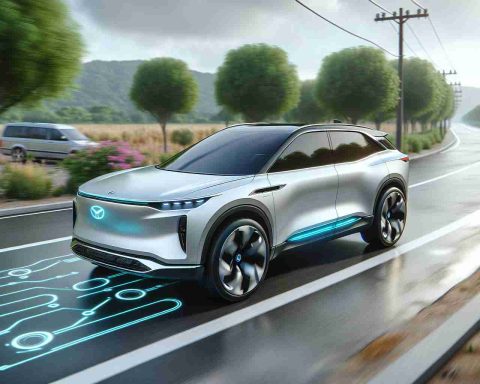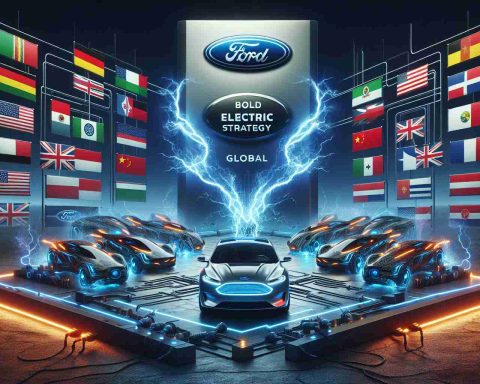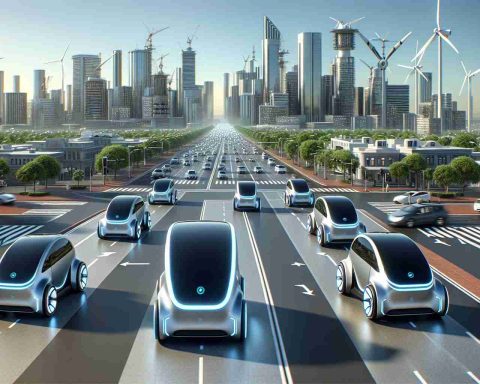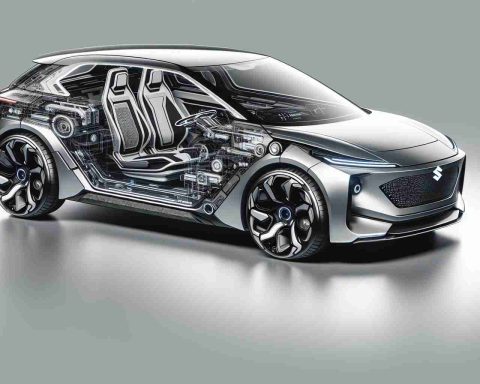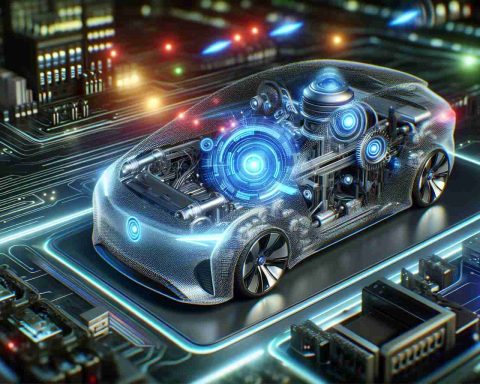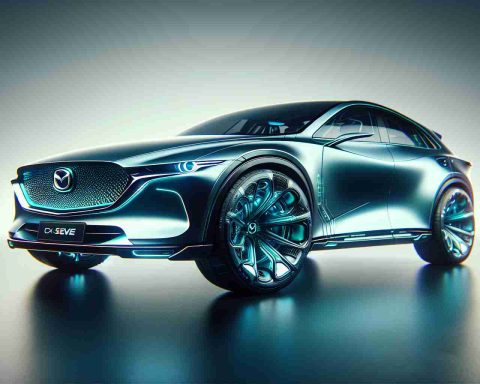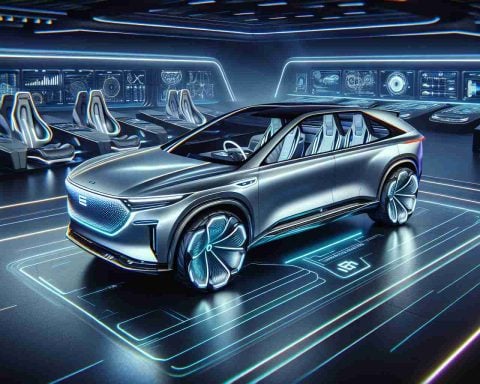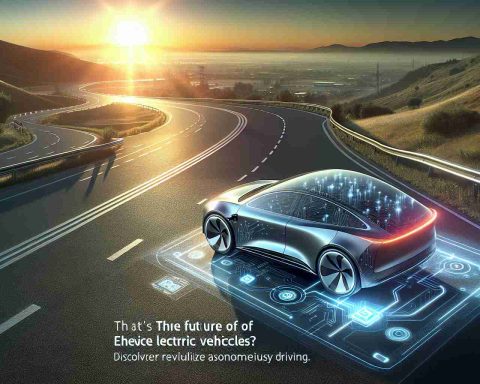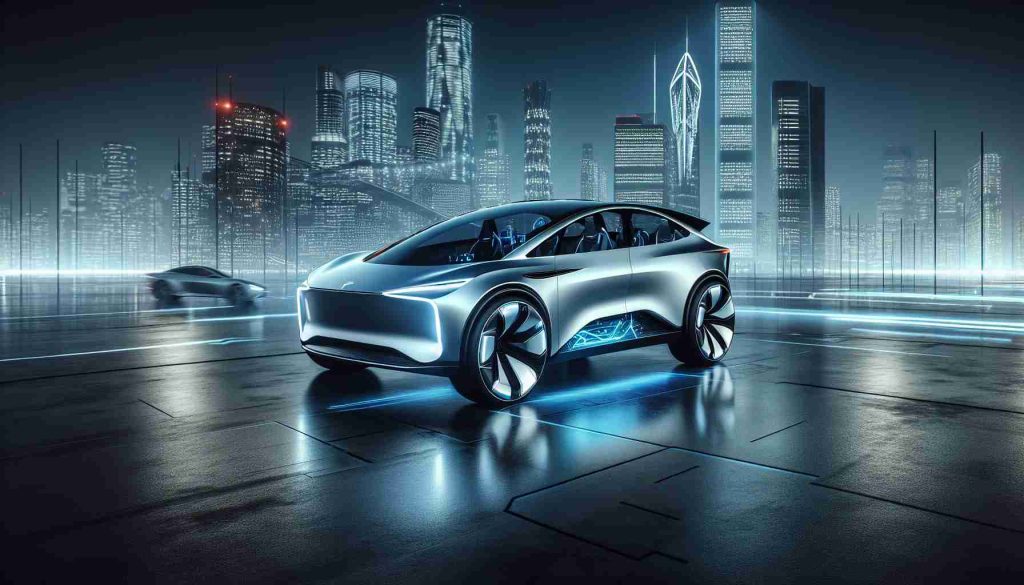- Ford’s CEO, Jim Farley, criticized selective tariffs, questioning their fairness and potential impact on U.S. automakers.
- He highlighted the risks of tariffs benefiting foreign competitors while threatening American automotive jobs and profits.
- Ford faces over $5 billion in losses from EV initiatives amidst rising competition in the electric vehicle market.
- The proposed 25% tariffs could significantly impact industry profits, consumer prices, and job security.
- Farley remains hopeful that the administration will support a balanced approach to strengthen the U.S. auto industry.
In a recent conference call that stirred the automotive landscape, Ford’s CEO, Jim Farley, boldly questioned the logic behind President Trump’s impending tariffs on imports from Mexico, Canada, and China. He posed a thought-provoking challenge: why are tariffs exclusively targeting certain regions while other contenders, like Hyundai and Toyota, face no additional penalties?
Farley pointed out an uncomfortable truth for the U.S. automotive industry; selective tariffs could spell disaster for American automakers while benefiting foreign competitors. His remarks painted a picture of an industry fighting for survival amid an unfair playing field, as he emphasized the need for a comprehensive tariff policy that applies equally across the board.
Amid this backdrop of uncertainty, Ford is grappling with significant financial losses, reporting over $5 billion in setbacks from its EV initiatives in 2024. As competition heats up with electric vehicles, they aim to innovate a new low-cost EV platform, yet that project remains years from fruition.
Moreover, the proposed 25% tariffs hang like a dark cloud over the sector. Farley cautioned that implementing these tariffs could obliterate billions in industry profits, lead to job losses, and skyrocket prices for consumers.
Despite these challenges, Farley remains optimistic about the administration’s commitment to bolstering America’s auto industry, recognizing its crucial role in job creation and economic stability. The key takeaway from this unfolding story? The automotive stage is set for a showdown between protectionist policies and the drive for equitable competition.
The Automotive Showdown: Will Tariffs Help or Hurt U.S. Manufacturers?
Analyzing the Impact of Tariffs on the U.S. Automotive Industry
In recent discussions surrounding President Trump’s proposed tariffs on imports from Mexico, Canada, and China, Ford’s CEO, Jim Farley, raised critical points that highlight the potential ramifications for American automakers. His concerns about selective tariffs not only reflect the precarious state of the automotive sector but also spotlight the emerging dynamics as companies pivot towards electric vehicles (EVs).
Pros and Cons of Selective Tariffs
Pros:
– Protects Local Manufacturing: Tariffs can provide a temporary shield for U.S. manufacturers against foreign competition, encouraging consumers to buy domestic vehicles.
– Job Preservation: Reducing foreign competition may help protect jobs in manufacturing sectors.
Cons:
– Increased Vehicle Costs: Tariffs typically lead to higher prices for consumers, as manufacturers pass on costs associated with tariffs.
– Market Distortion: Selective tariffs can create an uneven playing field, favoring certain companies while disadvantaging others, potentially leading to market inefficiencies.
Key Trends in the Automotive Landscape
1. Shift to Electric Vehicles: Automakers are investing heavily in EV technology, with projections indicating that EV sales could represent over 25% of global automotive sales by 2030.
2. Innovative Manufacturing Practices: Companies are exploring advanced manufacturing technologies such as AI and automation to streamline production processes and reduce costs.
3. Sustainability Drivers: With growing consumer demand for sustainable practices, companies are focusing on not just manufacturing electric vehicles but enhancing recycling processes and reducing overall carbon footprints.
Important Questions
1. How will tariffs affect consumer prices for vehicles?
Tariffs are likely to result in higher prices for consumers as automakers may increase prices to offset the costs imposed by tariffs. This could make new vehicles less affordable, particularly impacting low- to mid-income buyers.
2. What is the long-term outlook for American auto manufacturers like Ford in light of these tariffs?
In the long run, if tariffs lead to increased prices and reduced competitiveness against foreign manufacturers, U.S. automakers could find it challenging to maintain market share, especially as global competition intensifies in the EV sector.
3. Can Ford successfully innovate to counteract financial backslides amid tariff pressures?
While Ford is working on a new low-cost EV platform, the success of these innovations amid financial challenges and tariff pressures remains uncertain. The timeline for bringing these products to market could affect consumer confidence and investment in the brand.
Conclusion
As discussions around tariffs and trade policies continue, the U.S. automotive industry finds itself at a crossroads. Balancing protectionist measures against the need for a competitive and thriving market is crucial for the future of American automakers. The interplay between tariffs and the innovation needed in the EV space will shape the landscape of the automotive industry in the years to come.
For more information on the impact of current automotive policies, visit Automotive News.



